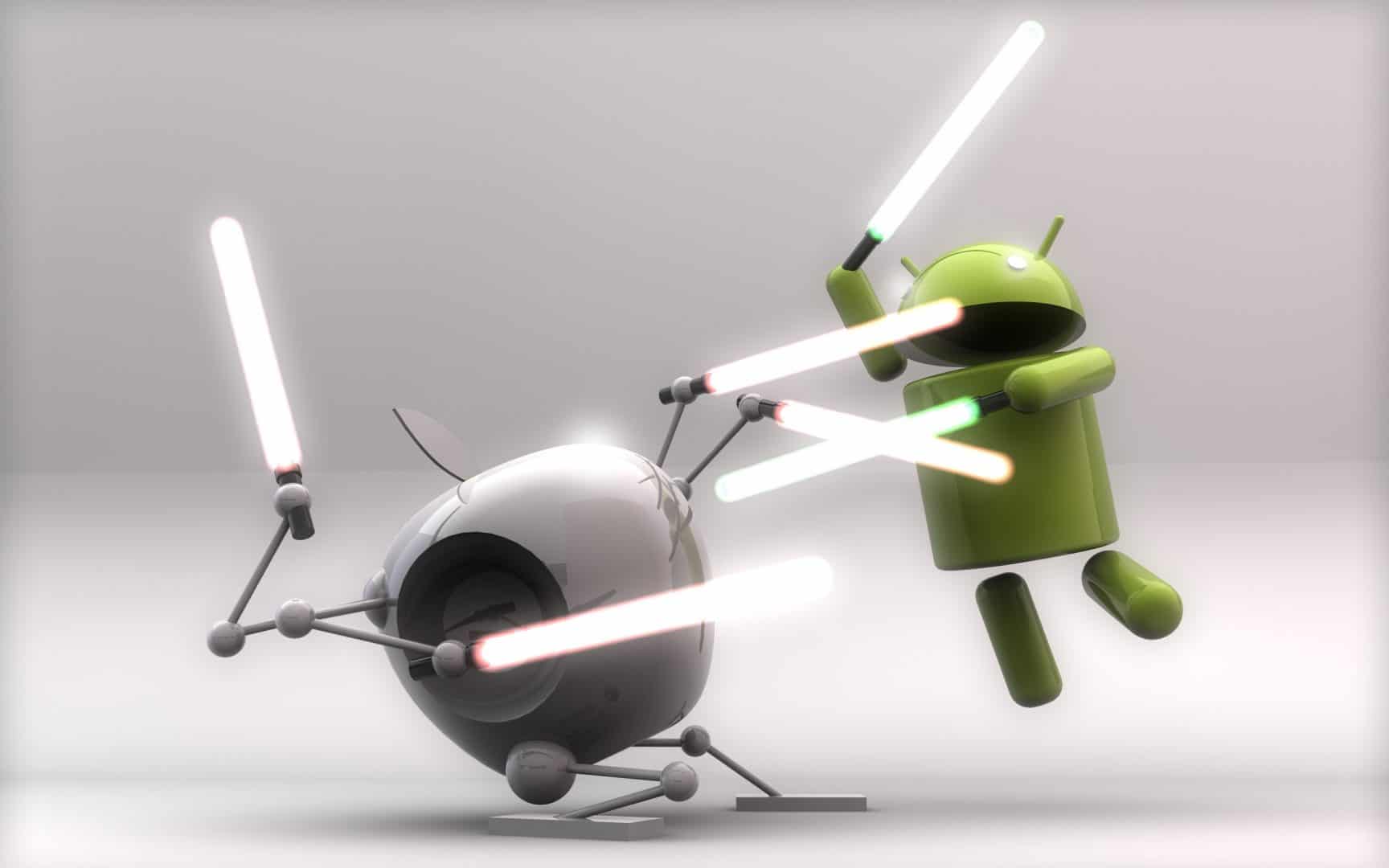
Even the all-powerful Pointing has no control
far from the countries Vokalia and Consonantia, there live the blind texts. Separated they live in Bookmarksgrove right at the coast of the Semantics, a large language ocean. A small river named Duden flows by their place and supplies it with the necessary regelialia.
Other platforms may try, but Google’s Android and Apple’s iOS comprise an overwhelming majority of platform usage among smartphone and tablet apps. Blackberry is still around (barely) and Windows Phone is gaining some ground, but the two main contenders have eclipsed all others in the market.
The following is an Android vs. iOS shootout in 5 different areas of consideration.
Multimedia:
Apple’s iTunes and iPhoto are easy-to-use, intuitive, and exceptionally good for organizing your music, TV, movie, and photo content. The white background and easily- sortable and customizable file databases have become ubiquitous. Fonts are easy to read and layouts are typically uncluttered.
Android users often rely on apps that ‘sync’ lighter-looking versions of iTunes to their devices. Primary of these is DoubleTwist. Essentially, the Android apps that sync to iTunes are more popular on Android than any actual alternative to iTunes.
Winner: Apple easily
Games:
By the numbers, Apple has a large advantage over Android, even though Android share is growing considerably. Apple has much tighter restrictions as to which games are available through the iTunes store, but they’re also more monetized, and that’s a huge incentive for developers and publishers.
Apple offers a singular, focused market through the iTunes store for acquiring games. While Android offers a larger share of its apps for free, its games market is fragmented and unorganized. The standards of quality aren’t always there, so iOS users do enjoy a higher degree of assurance in the quality realm as well.
Winner Apple
Social Networking:
Android has excelled in providing instant Facebook and Twitter alerts for its users without actually having to sign into the app, whereas social networking with iOS typically involves more steps with app launch. IOS does incorporate third parties such as Boxcar through which to get these feeds, but they’re usually for a fee. This is a case where the added fee does not justify the convenience as compared to Android.
Winner: Android
Travel:
Both platforms have done well in incorporating web favorites such as FlightTrack, Kayak, TripAdvisor, and Expedia into the mobile realm, as they have with working with most of the airlines in having practical, useful apps for airline ticketing, tracking, and even scanning services incorporated.
On the navigation front, Google Maps was once a standard on iPhone and now must be installed on iPhone5. It is a clear cult favorite over any of Apple’s mapping services, and of course, still comes standard on Android devices.
Winner: Android
Kids’ Apps
This one wasn’t even close. Of The Guardian UK’s 50 Best Apps for Kids for 2013 that Parents Can Trust, only 7 are available on Android, and all but one are available on iPhone/iPad. The variety, educational value, design quality, and level of intuitive use with iOS kid’s applications blows away the Android competition completely.




